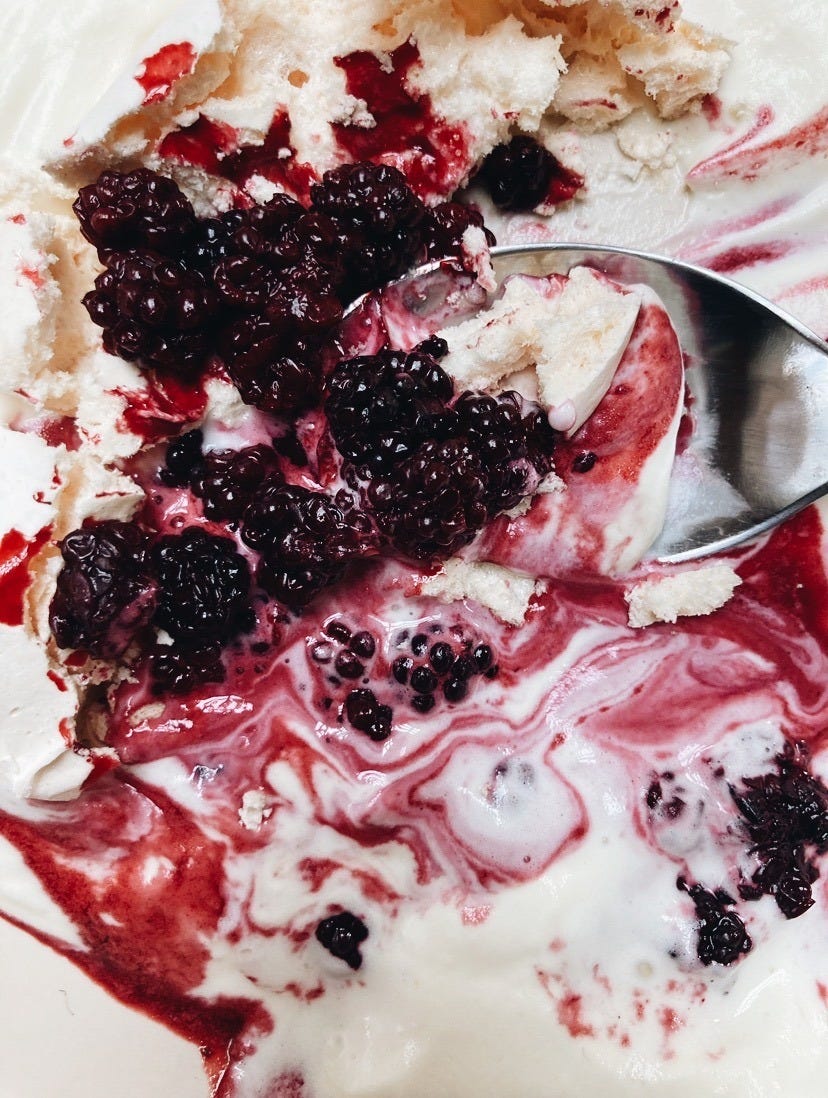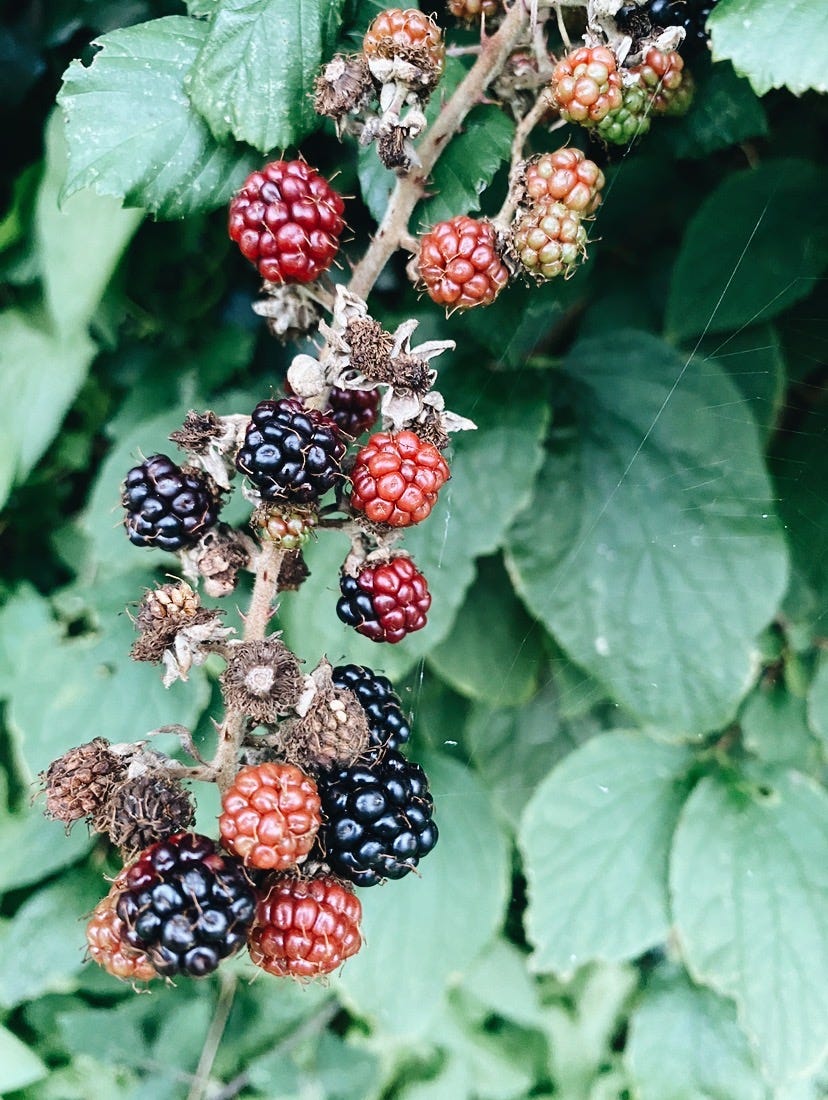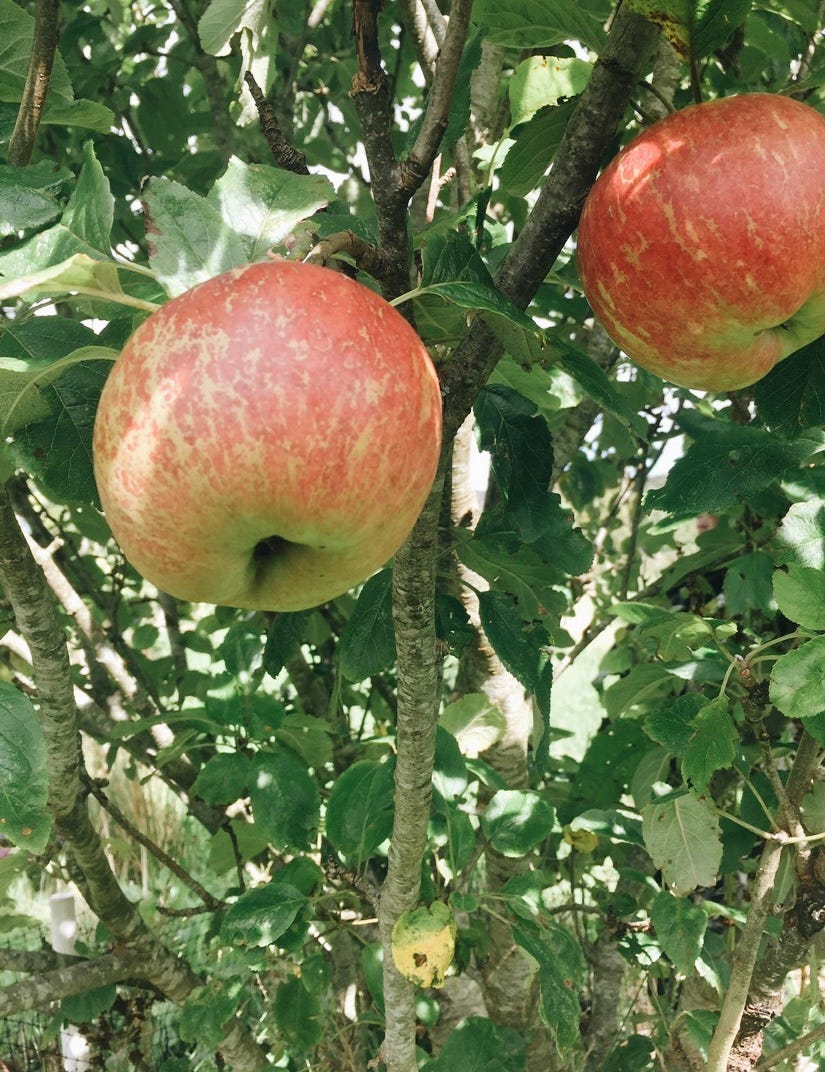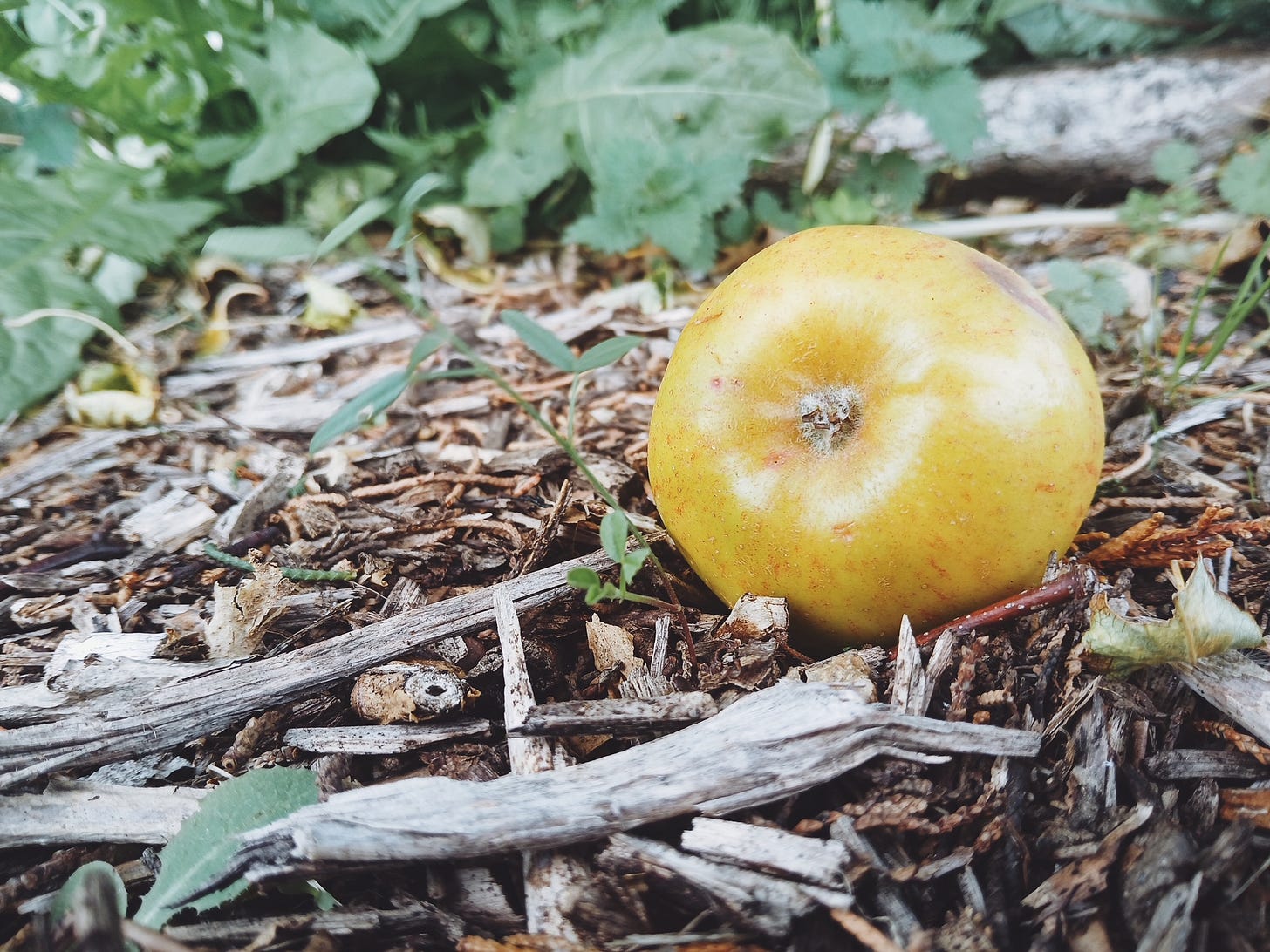Generous Little Ecosystems with Kevin J. Power
Musings on Foraging and Interconnectedness from Ireland's Dingle Peninsula + A Simple Recipe for Blackberry (or any Berry) Fool.
Philosopher, Professor, and Musician Kevin J. Power is a member of our community on the Dingle Peninsula. He actively participates in a local Meitheal which involves coming together to support neighbors with planting before sitting down to a meal. While this may seem like an innovative community-building project, Meitheal is an ancient Irish tradition of a group coming together for a common purpose and working together and for each other to ensure that all succeed in achieving their goal. This ‘coming together’, highly associated with agriculture, has always been the natural order of things. No man on his own. Since the beginning of time.
It was the culture of St. Francis felt deeply here on the Rieti plain that first opened my mind to the concepts of interconnectedness and interdependence. Through Kevin, I came to know the writings of the late Kerry Writer and Philosopher John Moriarty whose work also flies the flag for interconnectedness in communion with many of the world’s religions and indigenous cultures. John Moriarty is enjoying renewed popularity as part of our collective desire to find new ways of seeing and relating to the world.
Kevin’s thought-provoking piece shows us how delicate and readily available interconnectedness can be. I hope you enjoy it as much as I do.
One of the silver linings of the 2020 lockdowns was the opportunity to spend more time exploring the local landscape. We have a relatively small garden in rural Co. Kerry, and in the last few years, I have learned more and more about the interconnectedness of this little ecosystem, including its edible plant life. I remember cursing the existence of nettles as a child after getting stung by them. Only much later did I learn about their iron content, which humans can consume in the form of tea, soup, or pesto. On our small lawn, there are vitamin and nutrient-rich dandelions which can be eaten raw, cooked into crisps, or infused as tea. Red clover is another tea alternative. Horsetail is rich in silica which is good for hair, skin and nails. Cleaver is a detoxicant and rich in vitamin C.
Many of these plants are perceived as weeds and cut down without a second thought. Yet we are only a generation or two removed from a lifestyle in which knowledge of the nutritional value of these plants was commonplace. In the 21st century, it’s possible to combine local insight with scientific knowledge to develop a more personal and environmentally healthy relationship with our sources of nutrition. This way of learning also makes the interdependence of things apparent. It’s virtually impossible to learn about one item in your garden without opening up to learning about soil health, weather conditions, and bird and insect life.
Blackberries are a good example of this. When you inspect them to see if they are ripe and fresh, you’ll probably see different types of pollinators in and around them. You’ll probably see spider webs in the briars from which they grow. Spiders attract birds, who also feed on the berries, which you can identify second-hand by the purplish droppings they leave. A whole miniature ecosystem is observable in a few square inches. The human element of blackberry picking is also well-documented. It can be a great family or communal experience.
In parts of Ireland, there is a tradition that blackberries should not be eaten after 29th September on the occasion of Michealmas[1], when it is said that the devil spits on and ruins blackberries; a folkloric way of interpreting a botanical observation that blackberries tend to go bad or even toxic from late autumn onwards. Almost all of these elements are missing – or just easier to ignore - when you get your food from a supermarket.
At the bottom of our garden is an old apple tree which has held up remarkably well given that it is exposed to wind from the sea all year round. I had mostly seen it as just a nice feature of the garden up until the last couple of years; in summer 2023 it yielded 15kg of apples which we used for baking and gave to friends. Those that fall to the ground before we can pick them are eaten and broken down by the animal life in the garden. This is another instance in which it is easy to ignore what’s growing right beside you when you have become accustomed to buying what you need whenever you need it. Trees like this can feed our minds as they feed our bodies when we choose to pay attention to them. In Ireland’s Trees Niall Mac Coitir notes:
“In early Irish law the apple was classified as Airig fedo or Noble of the Wood as its fruit has been an important food source since earliest times.”
In a series of talks recorded in the volume One Evening in Eden, Kerry philosopher John Moriarty coins the term ‘mean receiver’ as a way to describe how human pride sometimes forces us to do hard work to earn the things that shelter and nourish us, rather than accept what is given to us by nature. Where other species use their environments for shelter and sustenance, we alter our environments in very effortful and often damaging ways to make social and technological progress.
This is the reality of life for many people in the 21st Century, and even though we should be grateful for what comforts and security are given to us compared to the hardships of the past, there is a dangerous side-effect of becoming blind to the richness and variety of the natural world. We should be wary of embracing the technological at the expense of the natural.
Some examples; we have invented swimming pools so that we can swim in a controlled environment, but seas and rivers give us this by default. We invented tanning beds to replicate a process which naturally occurs just by exposing oneself to sunlight. We cut down urban trees and replace them with mechanical equivalents.[2] And in the case of food, we rely on vast networks of industrial farming, transport and distribution, when food is often present to us in our local environment. Granted there are time, logistical and social pressures that prevent many people from being able to forage or grow their own food, but this could justifiably be seen as a reason to try to engage in these activities: the personal, psychological and communal benefits that come from growing and gathering food can act as great stress relievers before you even begin to consider the nutritional benefits.
Moriarty reflects on walking in Connemara and perceiving the generosity, the gifts, of nature:
Am I able to receive the generosity, am I able in a sense to be in the presence of the universe that is so totally offering itself in some way? Maybe it isn't offering itself, but certainly it is there present to me. So there's a generosity of giving and a generosity of receiving... And most of us who are able to be generous givers find it difficult to be generous receivers… look at the blackthorn bush and look at the apple trees, look at the way the apple tree leaves its apples there undefended and unprotected... look at the way the briar gives its blackberries...
There are many and varied benefits to learning about wild food sources other than their nutritional value. In a time when light can be summoned at the flick of a switch, we aren’t as attuned to the movements of the sun, moon and stars, and so we lose a naturalistic sense of the procession of the seasons and the passing of time. Similarly by having access to basically any food we want, whenever we want it, we lose a sense of the organic processes by which different foods grow at different times. It is arguably more rewarding to wait to eat strawberries in the natural window of time in which they grow than it is to have access to them all year round. Patience is a dying skill, and waiting for food to grow is a great way to practice it.
Shortly before writing this piece my mother-in-law made us a batch of blackberry fool, which is a very simple and effective way of making use of a big yield of blackberries and other fruits. It is a very adaptable recipe, and at base consists of natural yogurt mixed with a paste made from the berries and any other fresh fruit. This dish is a nice practical and inexpensive way of doing a little communal foraging and food preparation.
[1] https://www.irishtimes.com/opinion/fruit-of-the-doom-an-irishman-s-diary-about-blackberries-1.3236018
[2] https://greencitysolutions.de/en/clean-air-concept/









